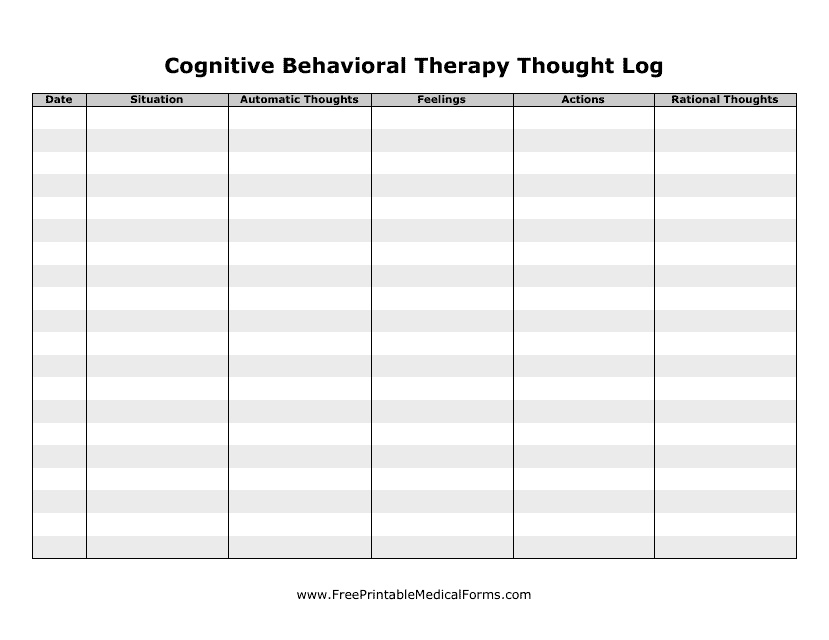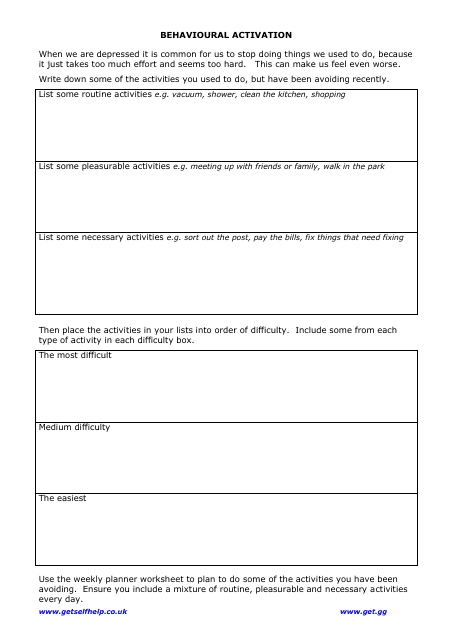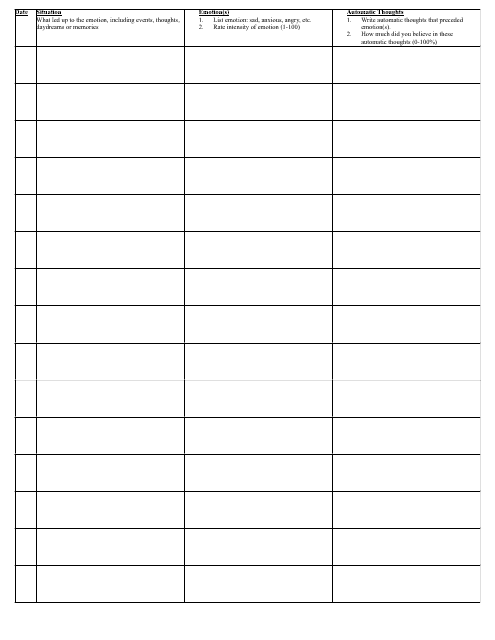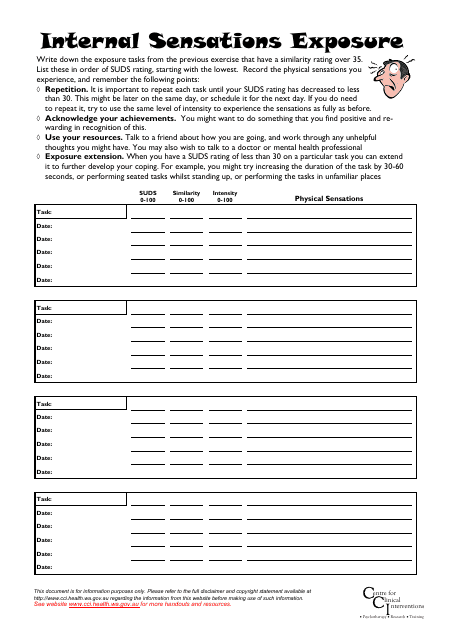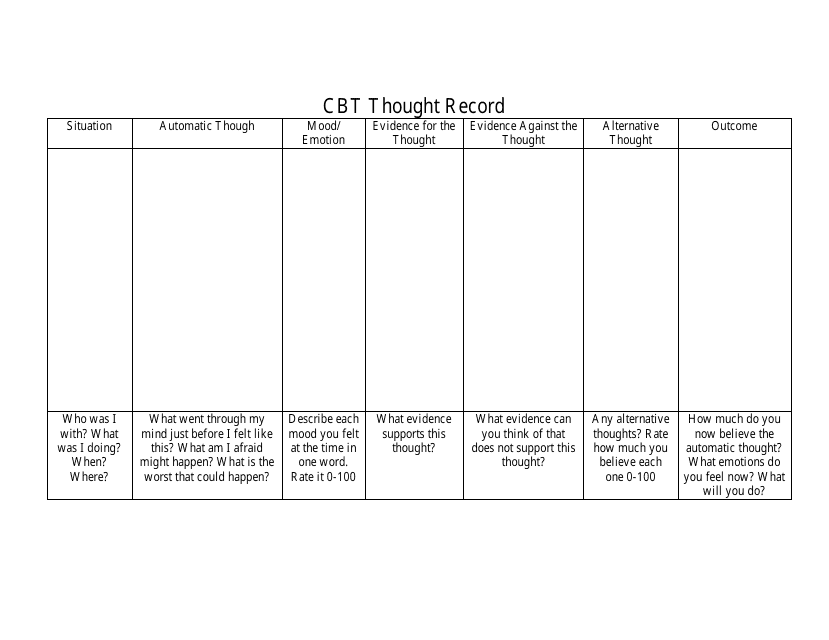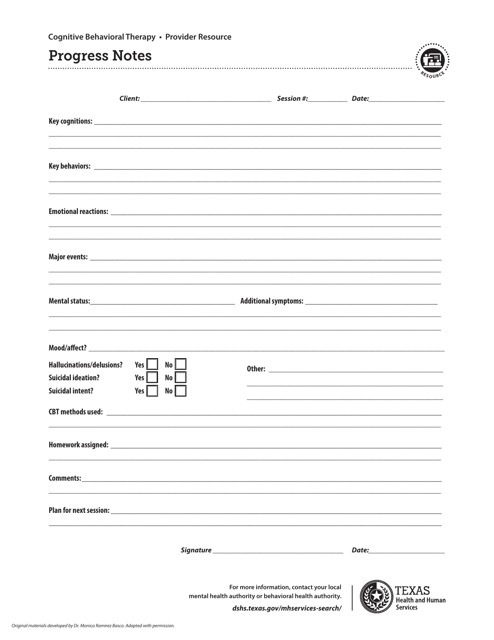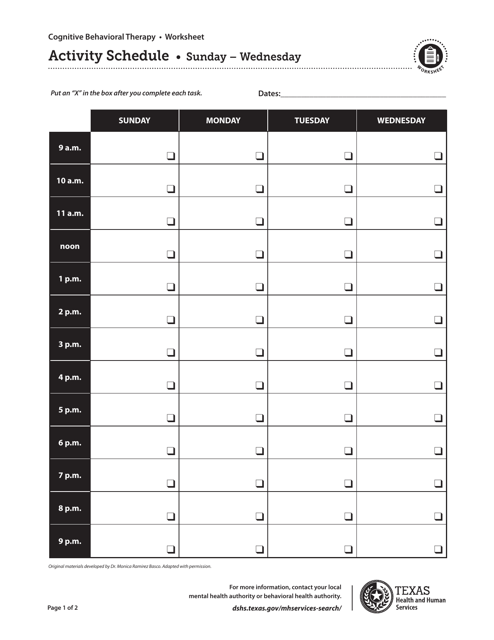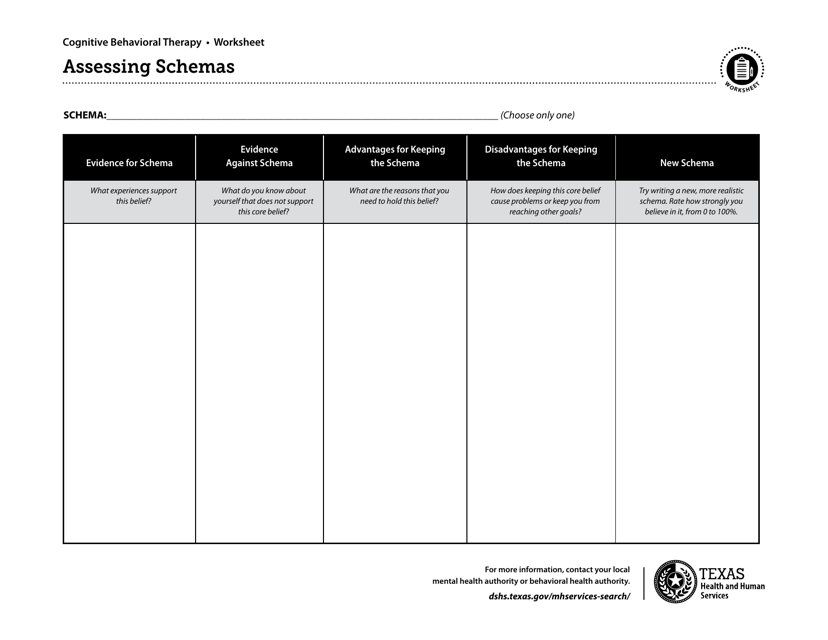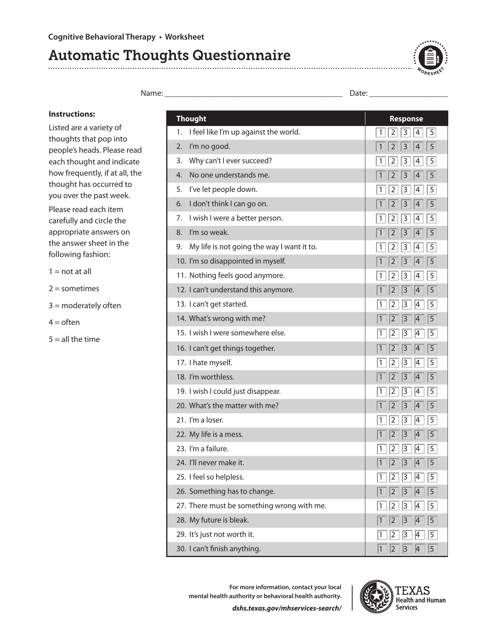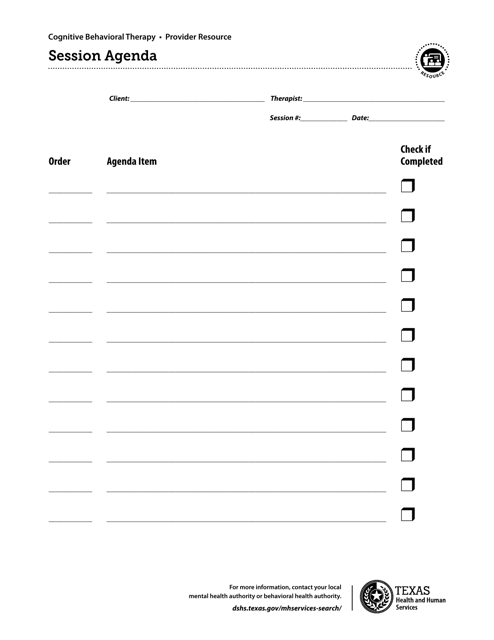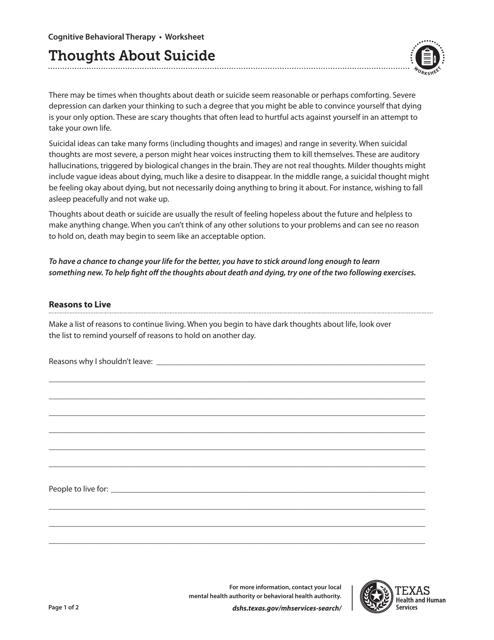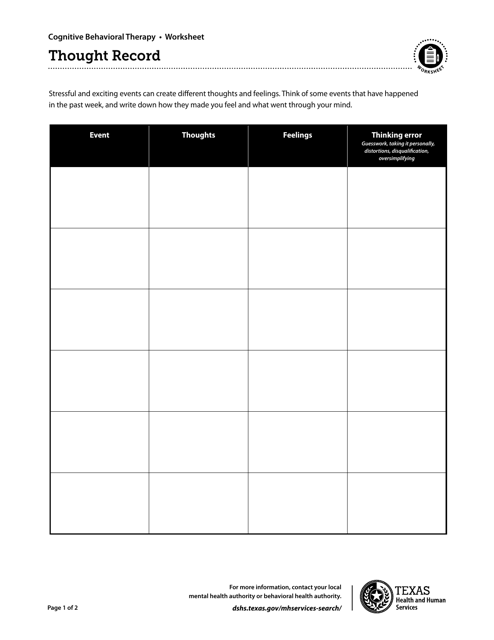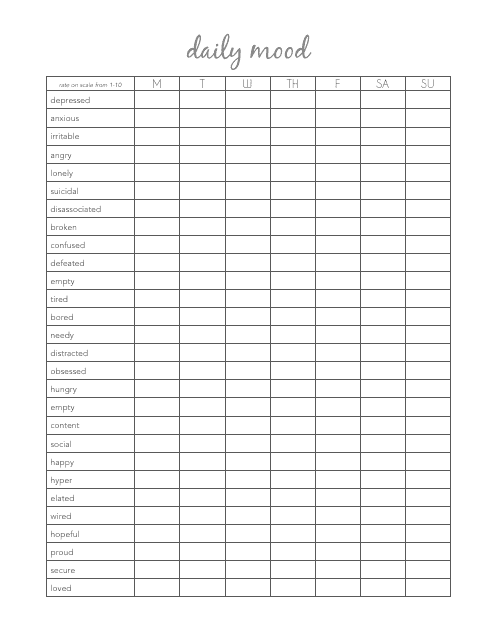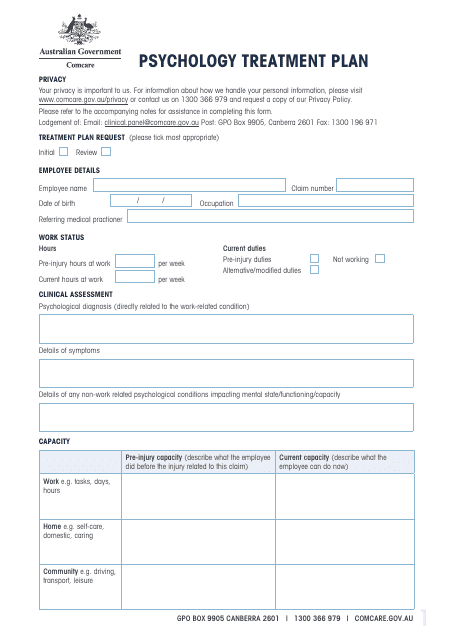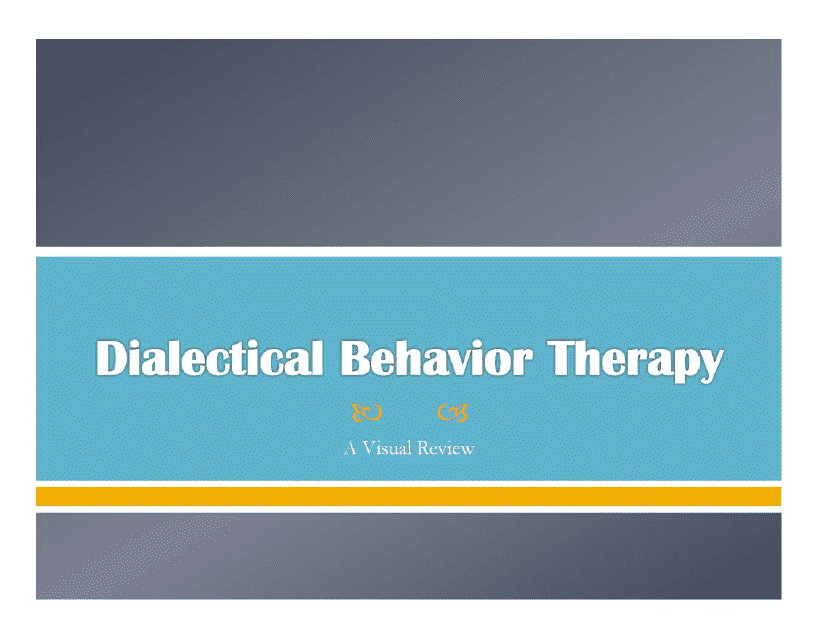Cognitive Behavioral Therapy Templates
Cognitive Behavioral Therapy (CBT) is a widely recognized and effective approach to treating various mental health conditions. Also known as Cognitive Behavior Therapy, this therapeutic modality aims to help individuals identify and change negative thought patterns and behaviors that contribute to their emotional distress. CBT is grounded in the understanding that our thoughts, feelings, and behaviors are interconnected and influence each other.
Through CBT, individuals can gain insight into their automatic thoughts and beliefs, which may be inaccurate or unhelpful. By challenging these negative thoughts and replacing them with more balanced and rational ones, individuals can develop healthier coping mechanisms and improve their overall well-being.
CBT is a practical and goal-oriented therapy that focuses on the present rather than dwelling on past experiences. It equips individuals with a variety of effective strategies and techniques to manage symptoms and overcome challenges. These may include keeping thought logs, where individuals can record and evaluate their thoughts, feelings, and related behaviors. This process helps uncover patterns and identify areas where cognitive restructuring is needed.
Assessing schemas is another important aspect of CBT. Schemas are underlying core beliefs that shape our perceptions of ourselves, others, and the world. By assessing and challenging these schemas, individuals can gain a better understanding of how they impact their thoughts, feelings, and behaviors. This leads to personal growth and the opportunity to develop new, more adaptive schemas.
During CBT sessions, a therapist and their client collaboratively set an agenda to guide the therapy process. This agenda outlines the topics to be discussed and the goals to be achieved in each session. It provides structure and direction, ensuring that the therapy remains focused and productive.
Additionally, CBT often involves the use of tools such as daily mood logs and psychology treatment plans. Daily mood logs allow individuals to track their daily mood fluctuations, helping them identify triggers and patterns. Psychology treatment plans help outline the goals, strategies, and timelines for therapy, providing a roadmap for progress.
Whether you are struggling with anxiety, depression, or other mental health concerns, CBT can provide you with the practical skills and strategies needed to overcome your challenges. With its evidence-based approach and focus on empowering individuals, CBT has proven to be an effective treatment option worldwide.
Don't let negative thoughts or unhelpful behaviors hold you back. Take control of your mental well-being with cognitive behavioral therapy (CBT) or cognitive behavior therapy. Empower yourself with the tools and insights to make positive changes and live a more fulfilling life. Start your journey towards healing today.
Documents:
15
This document is a template for recording thoughts and emotions during cognitive behavioral therapy sessions. It helps individuals track their thinking patterns and identify any negative or unhelpful thoughts that may contribute to feelings of distress or anxiety. The template can be used to identify and challenge negative thoughts, leading to more positive and healthier thinking patterns.
This document is a template for a Behavioral Activation Chart, which is a tool used to track and analyze daily activities and behaviors in order to improve mental health and well-being.
This document is used to help individuals analyze and challenge their negative thoughts and beliefs. It provides a structured format with three columns to identify and reframe negative thinking patterns.
This document is a template used by the Centre for Clinical Interventions to help individuals identify and explore their internal sensations and feelings.
This document is a thought record template for Cognitive Behavioral Therapy (CBT). It helps individuals identify and challenge negative thoughts and beliefs.
This document provides progress notes for cognitive behavioral therapy in Texas.
This document is an activity schedule for cognitive behavioral therapy in Texas. It outlines the specific activities and exercises to be completed as part of the therapy sessions.
This document is for assessing schemas in cognitive behavioral therapy in the state of Texas. It provides guidance and tools for evaluating and understanding thought patterns and beliefs that may impact mental health.
This document is a questionnaire used in cognitive behavioral therapy (CBT) to identify automatic thoughts. It is commonly used in Texas.
This document provides an agenda for a session on Cognitive Behavioral Therapy in the state of Texas. It outlines the topics and activities that will be covered during the session.
This document provides information on cognitive behavioral therapy for individuals in Texas who may be experiencing thoughts about suicide. It explores strategies and techniques used to address these thoughts and promote mental well-being.
This document is used for recording and analyzing thoughts in Texas. It provides a structured way to understand and manage emotions, beliefs, and behaviors.
This document outlines a comprehensive, personalized approach to improving mental health, specifically for those living in Australia. It details strategies for treatment, goals to be achieved, and a timeline for progress.

